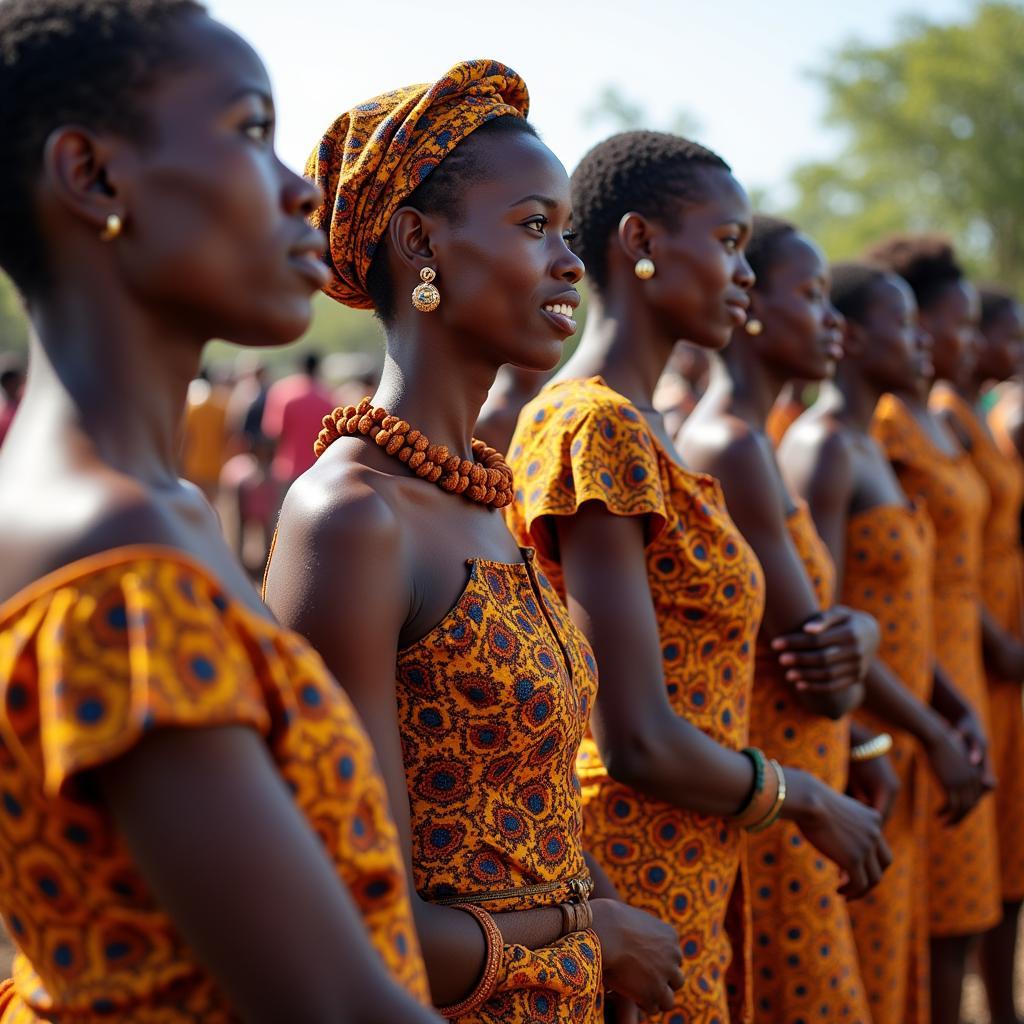Exploring the Power of African Drum Beats Instrumental
African Drum Beats Instrumental music holds a captivating power, resonating with a rich history and diverse cultural expressions across the continent. From celebratory rhythms to spiritual invocations, the mesmerizing sounds of African drums tell stories, preserve traditions, and connect generations. This exploration delves into the heart of these instrumental beats, uncovering their significance and the enchanting world they create. You can explore more about African beats instrumental by clicking here.
The Heartbeat of Africa: Understanding the Significance of Drum Beats
African drums are not merely instruments; they are the lifeblood of cultural expression. Their beats communicate emotions, narrate historical events, and accompany rituals, ceremonies, and dances. The intricate rhythms and varying tempos create a complex language, understood and felt deeply within African communities. Each drum, from the djembe to the talking drum, possesses a unique voice, contributing to the rich tapestry of African musical traditions.
The rhythmic patterns of African drums often mimic the natural world, echoing the sounds of animals, rainfall, and the human heartbeat. This connection to nature underscores the spiritual significance of the drums, linking them to ancestral spirits and the very essence of life.
After a particularly intense drumming session, I once heard a village elder say, “The drums speak what the heart cannot.” This perfectly captures the power of African drum beats to express the deepest emotions and connect people to something larger than themselves.
A Symphony of Rhythms: Different Types of African Drums and Their Unique Sounds
African drum beats instrumental music boasts a wide array of drums, each with its own distinct character and purpose. The djembe, with its goblet shape and rich bass tones, is perhaps the most recognizable. The talking drum, as its name suggests, can mimic the tonal inflections of human speech, adding another layer of complexity to the music. Other drums, like the kpanlogo and the sabar, contribute their unique voices to the diverse soundscape of African drumming.
Beyond Rhythm: The Cultural Context of African Drum Beats Instrumental
To truly appreciate African drum beats instrumental, one must understand the cultural context in which they thrive. The music is deeply intertwined with storytelling, dance, and spiritual practices. Drums are used to communicate messages, celebrate life events, and connect with ancestral spirits. For instance, in some cultures, specific drum rhythms are associated with particular deities or used to invoke blessings or protection.
You can learn more about African art by clicking African art for kids.
Where to Experience the Magic: Finding African Drum Beats Instrumental Music
In today’s digital age, experiencing the magic of African drum beats is easier than ever. Numerous online platforms offer African jungle music free download options, allowing you to immerse yourself in the rich soundscapes. Live performances, festivals, and cultural events provide an even more immersive experience, connecting you to the energy and passion of the drummers. You might even consider attending an African festival chicago. Learning to play African drums yourself can be a transformative journey, opening up a deeper understanding of the music and its cultural significance.
Conclusion: The Enduring Power of African Drum Beats Instrumental
African drum beats instrumental music continues to resonate across the globe, captivating listeners with its primal rhythms and rich cultural heritage. From ancient traditions to contemporary expressions, the drums remain a powerful force, connecting people to the heart and soul of Africa. Exploring the world of African drum beats is an enriching experience, offering a glimpse into the diverse cultures and traditions that make this continent so unique. Let the rhythms move you and discover the magic for yourself. African bass songs can further enhance your exploration, offering a vibrant blend of traditional and modern sounds. For those seeking more pulsating rhythms, check out these African bass songs.
FAQ
-
What is the significance of African drums? African drums are central to cultural expression, communication, and spiritual practices.
-
What are some common types of African drums? The djembe, talking drum, kpanlogo, and sabar are among the many types of African drums.
-
Where can I find African drum beats instrumental music? Online platforms, live performances, and cultural festivals offer opportunities to experience African drum music.
-
How can I learn to play African drums? Many resources are available, including classes, workshops, and online tutorials.
-
What is the best way to appreciate African drum music? Understanding the cultural context and exploring different drumming traditions enhances appreciation.
-
Are there different regional styles of African drumming? Yes, drumming styles vary significantly across different regions and ethnic groups in Africa.
-
What is the role of drumming in African storytelling? Drums often accompany storytelling, adding another layer of meaning and emotion to the narratives.
Situations where you might have questions about African drum beats instrumental:
- You are a music producer looking for unique and authentic sounds to incorporate into your work.
- You are a student researching African music and culture for a school project.
- You are a traveler planning a trip to Africa and want to learn more about the local music scene.
- You are simply curious about the fascinating world of African drumming and want to explore its rich history and traditions.
Further Exploration:
Explore other related topics on our website, such as traditional African dances, musical instruments, and cultural festivals. You can also find information on contemporary African music and its fusion with other genres.
Need help?
Contact us 24/7! Phone: +255768904061, Email: kaka.mag@gmail.com or visit us at Mbarali DC Mawindi, Kangaga, Tanzania.
